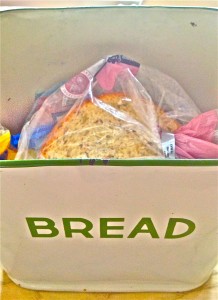I was given this interesting juxtaposition in response to a previous post. It’s thought provoking I should say…!
“Synthetic, by the way, is interestingly defined as ‘made by chemical synthesis especially to imitate a natural product.’”
That would actually be a ‘nature identical’ product. The majority of synthetic ingredients don’t exist in nature to start with, and those that do, and claim to be synthetic copies, are molecularly so different, they couldn’t possibly be considered the same and the body doesn’t recognise them as such.
That is not to say that un-natural products are inherently wrong. Let’s take an example of food: bread.
Putting to one side for a moment the carb bashers, bread is considered a basic (natural) food.
Yet bread doesn’t grow on trees. It doesn’t exist in nature. Like a beauty cream it is a concoction of ingredients that undergo chemical reactions (yeast), mechanical action (kneading) and heat reactions (baking) to produce a food that could never exist in nature even if they were lying side by side in the sun during an earthquake!
We (excluding the carb bashers) believe bread to be a nourishing healthy food. If made in the traditional way with fermented grains, milks, yeasts, leavened over a day or so… YUM!
But what about the way it is made today? Filled with Mono & Di-glycerides, Sodium Stearoyl Lactylate (SSL), and Diacetyl Esters of Tartaric Acid (DATEM), Lecithin from GM soy (yes, GMs may be banned here but so is horse meat), Azodicarbonamide (mainly used in production of foamed plastics as an additive and recently identified as a respiratory sensitiser), Calcium propionate, Hydrochloride and Sodium metabisulphate, Ammonium sulphate, Monocalcium phosphate or calcium carbonate… all ingredients used to ‘imitate’ fresh bread that has been made by hand in a time honoured manner, and can last weeks on end in order to extend shelf life. And some of those ingredients won’t even be labeled as such but instead are called whey extract and so on.
Oh, and if you’re older than 23, you’ve also been eating Bromide, only banned in the UK in 1990 as an endocrine disruptor.
And that’s just bread. The original, albeit un-natural food, is a delicious, probiotic concoction to be smothered in butter and jam. Nothing wrong with an un-natural product. But when you start messing with it, adding synthetic chemicals, emulsifiers and preservatives to benefit the mass manufacturers and supermarkets… well, it’s hardly bread anymore.
And if that’s what they allow to happen to our food, an essential resource, why on earth would there be concern over our vanity products?
Hmmm…
Good point…
(Thanks Sarah)
I shall be making ‘proper’ bread over on the nutrition side…
